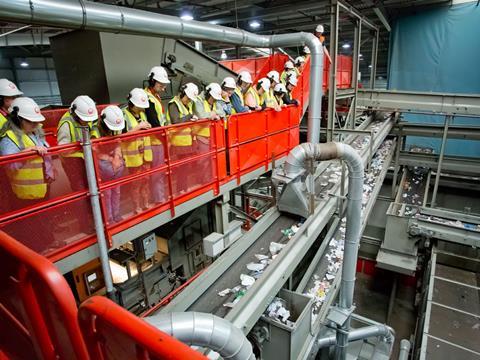
As part of the drive to increase the circular economy and tackle the problem of packaging waste, Veolia is launching a Sustainable Packaging Academy. Designed to close the link between producers and recyclers, it says this new initiative will provide businesses with the opportunity to better understand packaging circularity and future-proof packaging design.
The Sustainable Packaging Academy aims to provide a new route for industry to achieve a real circular economy for all types of packaging and ensure materials can be easily collected, recycled and returned to industry for re-use. This approach brings in the consumer experience, waste collection, processing and end market realities to help provide the best advice on overcoming the challenges.
By joining the Academy, Veolia says members will be able to take advantage of the latest reports and design guides, and work in partnership to develop bespoke solutions that boost sustainability. Members will also be able to keep track of legislative changes, network with other packaging stakeholders, and take advantage of Veolia's expertise in the latest recycling technologies.
The company says the Academy is aimed at anyone who is involved in packaging design, environment, supply chain or sustainability roles in key sectors such as food and beverage, pharmaceuticals and chemicals, retail or packaging manufacture.
Speaking to Packaging Europe about the aims behind the establishment of the Academy, Richard Kirkman, Chief Technology and Innovation Officer, Veolia UK and Ireland said:
"This is a unique opportunity for manufacturers and retailers to work with a waste management leader to understand what really happens to their packaging when sent to the recycling infrastructure. By opening our doors and having this discussion with producers, we aim to close the loop and overcome existing challenges on packaging circularity. Depending on their current knowledge, and the extent of their packaging challenge, manufacturers and retailers have very different needs, which is why we want our SPA service to be flexible and adapted to everyone: some with less knowledge will need a full introduction to the recycling process through a workshop in our facility, while more advanced producers will want to go further and trial new packaging design in our infrastructure."
He also points out that this need for knowledge-sharing works both ways. "We also need to gain more understanding of the packaging industry to ensure we can supply them with the right recycled materials to fully close the loop on packaging."
But while the problem of tackling plastic waste is a huge one, many would also remind us that we mustn’t lose sight of the wider problem of the global climate crisis. Would Veolia agree with this?
"Of course. We know decisions on packaging design can have a big impact on carbon emissions and climate change. Our Sustainable Packaging Academy can also support producers by providing carbon footprint analysis. In many cases, choosing the right packaging design for sustainability is not a straightforward answer; there are often pros and cons to consider when choosing a new design. Our approach is to give all the available information and facts around recyclability and carbon impact. It is then the producer's responsibility to make their own educated choice."













